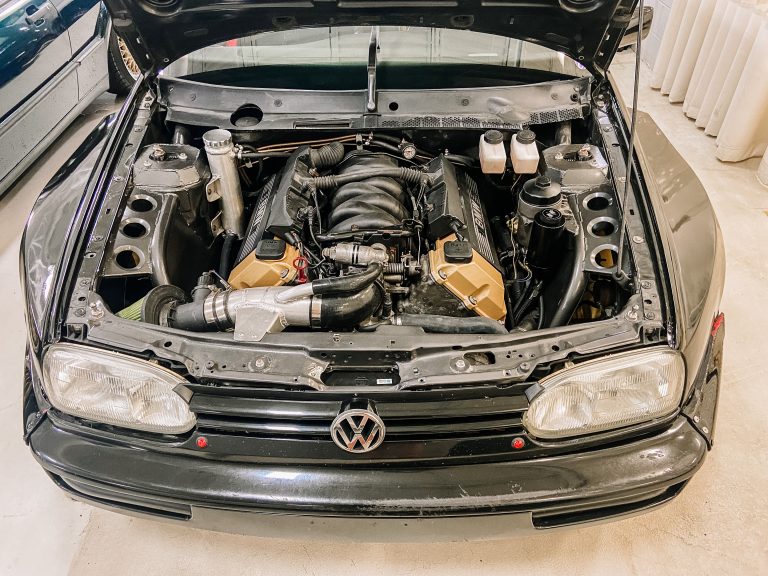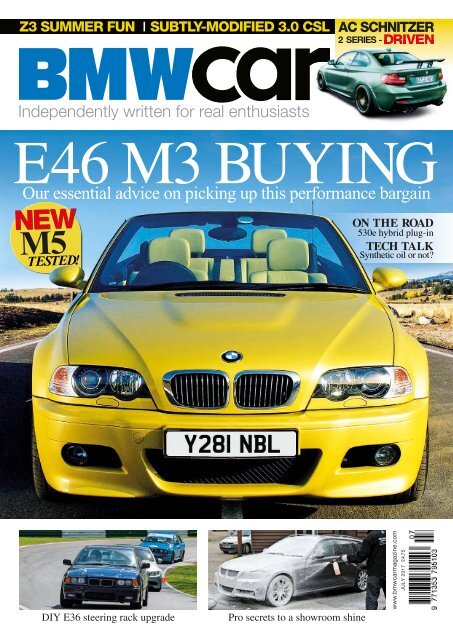BMW’s are known to be expensive cars to maintain, with higher-than-average maintenance costs compared to other luxury brands.
Examining The Maintenance Myths
When it comes to luxury cars, the cost of maintenance is often a point of concern for potential buyers. BMW, being one of the leading luxury car manufacturers, is no exception. There is a lot of speculation and misconception surrounding the maintenance costs associated with owning a BMW. In this article, we will address and debunk some of the common perceptions about BMW maintenance, and shed light on the factors that may influence higher maintenance expenses.
Analyzing Common Perceptions About Bmw Costs
Despite being known for its exceptional performance and elegant design, BMWs have gained a reputation for being expensive to maintain. Let’s take a closer look at some of the common perceptions:
- High labor costs: One of the main reasons people believe BMW maintenance is costly is due to the assumption that labor costs are exorbitant. While it is true that BMWs require specialized knowledge and expertise, leading to higher labor rates, it is essential to consider other factors that contribute to overall maintenance expenses.
- Expensive parts: Another widely held belief is that BMW replacement parts carry hefty price tags. While it is true that genuine BMW parts can be pricier compared to non-OEM alternatives, it is crucial to understand that using genuine parts ensures optimal performance and longevity for your BMW.
- Complicated technology: BMWs are renowned for their advanced technologies and intricate systems. Some perceive this complexity as a potential source of increased maintenance costs since specialized diagnostic equipment and skilled technicians may be required. However, the complexity of BMWs is a testament to their engineering excellence, aiming to provide a superior driving experience.
Recognizing Factors That Influence Higher Maintenance Expenses
While BMW maintenance costs may vary depending on the specific model and year, there are several factors that can contribute to higher expenses:
- Age and mileage: As with any car, the age and mileage of a BMW can impact maintenance costs. Older BMWs or those with high mileage may require more frequent repairs and replacement of wear and tear components.
- Regular maintenance: Consistent and proper maintenance can help prevent costly repairs in the long run. Neglecting routine maintenance tasks such as oil changes, fluid replacements, and filter changes can lead to more significant issues and higher expenses down the line.
- Driving habits: Aggressive driving, frequent short trips, and harsh road conditions can put additional stress on a BMW’s components, resulting in accelerated wear and potential repairs.
- Specialized equipment and expertise: BMWs require specific diagnostic tools and specialized knowledge for maintenance and repairs. This may lead to higher labor rates at authorized service centers compared to non-luxury brands.
It is important to note that while BMW maintenance costs may be higher compared to some non-luxury brands, they are often offset by the exceptional driving experience and the premium quality of BMW vehicles. Additionally, proactive maintenance and regular servicing can help mitigate the risk of unexpected repairs and minimize future expenses.
Now that we’ve examined the maintenance myths and identified the factors influencing BMW maintenance costs, you can make a more informed decision when considering the maintenance expenses associated with owning a BMW. Remember, staying proactive with maintenance and finding a reputable BMW service center can help ensure that your BMW delivers a thrilling and reliable driving experience for years to come.
Bmw Expensive Car To Maintain: Real Vs Hyped Costs
Maintaining a BMW can be costly, but the actual costs may not be as hyped as some claim. While repairs and parts can be expensive, proper maintenance and regular servicing can minimize unexpected expenses.
Comparing Bmw Maintenance Costs To Other Luxury Brands
When it comes to luxury cars, BMW has always been renowned for its performance and cutting-edge technology. However, one common concern among potential buyers is the cost of maintaining a BMW. There has been a lot of hype surrounding the expensive maintenance costs of these German automobiles, but how does it fare when compared to other luxury brands? Let’s dive into the real costs of maintaining a BMW and debunk any myths.Breaking Down The Cost Components: Labor, Parts, And Frequency
To understand the true expenses of maintaining a BMW, it is essential to break down the cost components. The first factor to consider is labor. As BMWs are complex and sophisticated machines, the labor cost for repairs and maintenance can be higher compared to mainstream cars. Skilled technicians and specialized equipment are required to work on these vehicles, which can drive up the overall cost. Moving on to parts, BMWs utilize high-quality components and advanced technology to deliver top-notch performance. As a result, the cost of genuine BMW parts can be higher than those of other brands. However, it is important to note that not all parts need frequent replacement. Routine maintenance, such as oil changes and filter replacements, may not be significantly different from other luxury brands. Lastly, the frequency of maintenance plays a crucial role in determining the overall cost. BMWs generally require more frequent servicing compared to non-luxury vehicles. Regular maintenance, such as checking fluid levels, inspecting brakes, and replacing worn-out components, contributes to the longevity of the car but can add to the expenses in the long run.Debunking Myths Versus Acknowledging Truths
There is a common perception that BMWs are inherently unreliable and excessively costly to maintain. While it’s true that luxury vehicles, including BMWs, may require more attention and investment in maintenance, it is essential to separate the facts from the hype. Myth: BMWs always incur substantial repair costs. Truth: While some repairs can be expensive, this is not exclusive to BMWs. High-performance vehicles, regardless of the make, tend to have more advanced systems that can result in higher repair costs. Myth: BMWs are unreliable and constantly break down. Truth: BMWs are engineered to be reliable and durable. Proper maintenance and regular servicing significantly contribute to the car’s reliability and minimize the chances of breakdowns. Myth: BMW maintenance costs are significantly higher than other luxury brands. Truth: While BMWs do have higher maintenance costs compared to mainstream cars, the difference between BMW and other luxury brands may not be as substantial as perceived. It is important to consider the overall value, performance, and enjoyment that a BMW brings. In conclusion, BMWs can indeed be more expensive to maintain compared to non-luxury vehicles. However, the costs are often exaggerated, and it is crucial to understand the specific factors contributing to these expenses. By properly maintaining your BMW and addressing any issues promptly, you can ensure a reliable and enjoyable ownership experience without breaking the bank.Preventing Costly Repairs
Owning a BMW is undoubtedly a dream come true for many car enthusiasts. However, it is no secret that BMWs can come with a higher price tag not only during the initial purchase, but also when it comes to maintenance and repairs. In order to offset these costs and ensure that your BMW remains in top-notch condition for years to come, it is crucial to follow a preventive maintenance routine. By taking proactive measures, you can not only enhance the performance of your BMW but also save yourself from costly repairs down the line.
Role Of Routine Service In Bmw’s Performance
Regular routine service plays a vital role in maintaining the performance and longevity of your BMW. The manufacturer provides recommended service intervals that cover various aspects of your BMW’s components and systems. Adhering to these intervals ensures that your BMW receives proper care and attention it needs to avoid any unexpected breakdowns or major issues.
During routine service, skilled technicians inspect and service essential parts such as the engine, transmission, brakes, suspension, and electrical systems. They perform tasks like oil changes, filter replacements, fluid checks, belt and hose inspections, and more. These preventative measures help identify potential issues before they escalate, thereby preventing expensive repairs in the future.
Long-term Savings From Preventative Maintenance Practices
Investing in preventative maintenance practices can lead to significant long-term savings in the upkeep of your BMW. While it might seem tempting to skip routine service to save a few bucks in the short term, it can result in more expensive repairs or even catastrophic engine failures in the long run.
By performing regular maintenance tasks and inspections, technicians can identify and resolve minor issues before they turn into major problems. This can save you from costly part replacements, engine repairs, or even the need for a whole new vehicle down the line.
Additionally, preventative maintenance can improve fuel efficiency and overall performance, resulting in cost savings over time. A well-maintained BMW retains its market value better, making it a sound investment if you choose to sell or trade-in your vehicle in the future.
To ensure maximum savings and protection against expensive repairs, it is essential to follow the manufacturer’s recommended maintenance schedule and visit a reputable service center or dealership that specializes in BMW vehicles. These professionals have the expertise and knowledge to properly maintain and service your BMW, providing you with peace of mind and confidence in your vehicle’s performance.
Understanding Bmw Service Intervals
Keeping up with regular maintenance is crucial for the longevity and performance of any vehicle, and BMWs are no exception. However, when it comes to BMWs, there is often a perception that they are expensive to maintain. In this article, we will delve into the topic of BMW service intervals, exploring BMW’s recommended service schedule and the cost implications of different upkeep intervals. By understanding these aspects, you can make informed decisions and ensure that your BMW stays in top-notch condition without breaking the bank.
Bmw’s Recommended Service Schedule
BMW has a comprehensive maintenance schedule that is designed to address the specific needs of their vehicles at different mileage intervals. By adhering to this schedule, you can minimize the risk of potential issues and costly repairs down the line. Here is an overview of BMW’s recommended service intervals:
| Mileage Interval | Service Type |
|---|---|
| 5,000 to 10,000 miles | Oil change, filter replacement, inspection of fluid levels |
| 15,000 to 30,000 miles | Brake fluid replacement, cabin air filter replacement, engine air filter replacement |
| 30,000 to 60,000 miles | Spark plug replacement, transmission fluid change, differential fluid change |
| 60,000 to 100,000 miles | Timing belt replacement, coolant system flush, fuel system cleaning |
Cost Implications Of Upkeep At Different Intervals
The frequency and type of maintenance procedures required for your BMW can have a significant impact on your overall costs. While adhering to BMW’s recommended service intervals may require more frequent visits to the service center, it can help identify potential issues before they escalate into major problems.
- Regular maintenance at shorter intervals, such as oil changes and filter replacements, can help keep your BMW running smoothly and efficiently. These procedures are relatively affordable and can prevent more costly repairs down the line, improving the overall lifespan of your vehicle.
- Delaying or skipping recommended maintenance can result in increased wear and tear, leading to more frequent breakdowns and expensive repairs. Neglecting something as seemingly minor as a fluid change or filter replacement can have far-reaching consequences on the performance of your BMW.
- It is important to note that while BMWs may have a reputation for higher maintenance costs, routine maintenance and timely repairs can ultimately save you money in the long run. By addressing issues early on, you can prevent them from turning into major and costly repairs.
Navigating Post-warranty Maintenance
Owning a BMW is a dream for many automotive enthusiasts. The German luxury brand is known for its sleek design, powerful engines, and advanced technology. However, one aspect of BMW ownership that often worries potential buyers is the cost of maintenance, especially after the warranty period expires. In this article, we will discuss strategies for cost-effective BMW ownership post-warranty, as well as the pros and cons of choosing third-party versus authorized dealers for repairs. Read on to discover how you can navigate post-warranty maintenance without emptying your pockets.
Strategies For Cost-effective Bmw Ownership Post-warranty
Maintaining a BMW post-warranty doesn’t have to break the bank. By following these strategies, you can keep the costs under control while still enjoying the performance and luxury that your BMW offers:
- Regular Maintenance: Following the manufacturer’s recommended maintenance schedule is crucial to prolong the lifespan of your BMW. Regular oil changes, filter replacements, and tire rotations can help prevent costly repairs down the line.
- DIY Repairs: If you have the skills and knowledge, performing simple repairs and maintenance tasks on your own can save you a significant amount of money. Simple tasks like changing spark plugs or replacing brake pads can be easily done at home with the right tools.
- Research & Compare Prices: Before visiting a repair shop, it’s a good idea to research and compare prices from different providers. Get multiple quotes and choose a reputable and cost-effective repair shop that specializes in BMW maintenance.
- Extended Warranty: Consider investing in an extended warranty to protect yourself from unexpected repair costs. An extended warranty can provide peace of mind and cover expensive repairs, ensuring you’re not hit with a hefty bill.
Third-party Versus Authorized Dealers For Repairs
When it comes to post-warranty repairs, BMW owners often debate whether to choose third-party repair shops or stick with authorized dealers. Here are the advantages and disadvantages of each option:
| Third-Party Repair Shops | Authorized Dealers |
|---|---|
|
|
Ultimately, the choice between a third-party repair shop and an authorized dealer depends on your budget, preferences, and the complexity of the repair needed. If cost is your primary concern, a reputable third-party repair shop can be a more affordable option. However, if you prefer the peace of mind that comes with genuine BMW parts and specialized service, choosing an authorized dealer is the way to go.
In conclusion, owning a BMW post-warranty doesn’t have to drain your bank account. With cost-effective strategies and careful consideration of repair options, you can enjoy the luxury of your BMW without worrying about excessive maintenance costs. Remember to prioritize regular maintenance, consider DIY repairs when possible, and weigh the pros and cons of third-party repair shops versus authorized dealers. By taking a proactive approach to post-warranty maintenance, you can navigate the world of BMW ownership with confidence.
Resale Value Impact Of Maintenance
The BMW’s reputation for being an expensive car to maintain is well-known. Maintenance costs for BMW vehicles can be higher compared to other brands, making resale value impacted. It is important for BMW owners to factor in these maintenance expenses when considering the long-term value of their vehicle.
How Maintenance Affects Bmw’s Resale Value
Resale value is an important factor to consider when purchasing a luxury car like a BMW. The way you maintain your BMW can have a significant impact on its resale value. Proper and consistent upkeep can help maintain or even increase the value of your BMW, while neglecting maintenance can lead to a depreciation in its worth.The Balance Between Consistent Upkeep And Total Cost Of Ownership
Finding the right balance between consistent upkeep and the total cost of ownership is crucial when it comes to maintaining the resale value of your BMW. While BMWs are known for their quality and performance, they can also be expensive to maintain. Regular service intervals, specialized parts, and skilled labor all contribute to the higher maintenance costs of a BMW. However, by keeping up with the recommended maintenance schedule and addressing any issues promptly, you can ensure your BMW remains in optimal condition and minimize the impact on its resale value.Ensuring Each H3 Heading Adheres To Html Syntax
| HTML Syntax | Heading |
|---|---|
| How maintenance affects BMW’s resale value | |
| The balance between consistent upkeep and total cost of ownership | |
| Ensuring each H3 heading adheres to HTML syntax |
Luxury Rivalry: Bmw Vs. Mercedes Maintenance
Maintaining a BMW can be costly compared to other luxury brands due to high repair and maintenance fees. However, it’s important to note that these expenses can vary depending on the specific model and age of the vehicle.
Cost Comparisons With Direct Competitors
When it comes to luxury vehicles, both BMW and Mercedes are renowned for their prestige and performance. However, one crucial factor that potential buyers must consider is the cost of maintenance. Comparing the expenses of BMW and Mercedes can aid in making an informed decision.
Let’s take a look at the cost comparisons:
| Car Model | BMW | Mercedes |
|---|---|---|
| 1 Series | $800-1,500 | $900-1,700 |
| 3 Series | $1,000-1,800 | $900-1,700 |
| X5 | $1,200-2,000 | $1,000-1,800 |
These figures are approximate yearly maintenance costs for various BMW and Mercedes models. Despite some variations, the costs of maintaining both brands are relatively similar, with BMW often being slightly more expensive.
Evaluating Overall Value From A Maintenance Perspective
When evaluating the overall value of a luxury vehicle from a maintenance perspective, it’s essential to consider factors beyond cost alone. While BMW maintenance costs may be slightly higher, the brand offers an exceptional driving experience, innovative technology, and top-notch safety features that contribute to its overall appeal.
Furthermore, BMW is renowned for its German engineering and long-lasting durability, reducing the frequency of major repairs compared to other luxury brands. This reliability, combined with the BMW warranty coverage, can provide peace of mind to owners.
On the other hand, Mercedes vehicles also provide a premium driving experience and boast cutting-edge technology and safety features. Evaluation of the specific model and individual preferences is crucial when determining the overall value of a Mercedes vehicle from a maintenance perspective.
Ultimately, it’s important to consider the total cost of ownership, including factors such as resale value, fuel efficiency, and insurance rates, alongside maintenance expenses when making a decision between BMW and Mercedes.
Minimizing Bmw Ownership Costs
One aspect that potential BMW owners often consider is the cost of maintaining these luxury vehicles. It is no secret that BMW cars can come with a higher maintenance price tag compared to some other brands. However, there are ways to minimize these ownership costs and enjoy the driving experience without breaking the bank. In this article, we will explore different approaches to reduce the burden of BMW maintenance expenses.
Leasing Versus Buying A Bmw For Lower Maintenance Burden
When it comes to reducing maintenance costs, one option to consider is leasing a BMW rather than buying it outright. Leasing can be a smart choice for those who want to experience the thrill of driving a BMW without the long-term maintenance commitment. With a lease, you typically have the advantage of being covered under the vehicle’s warranty for the duration of the lease term, which means that any major repairs or part replacements may be taken care of by the manufacturer.
Moreover, leasing a BMW also eliminates the concern of the car’s depreciation in value over time. As you return the vehicle at the end of the lease term, you are not responsible for selling or trading it in, potentially saving you from additional expenses. Leasing allows you to enjoy the latest models with lower maintenance obligations, making it a viable option to keep ownership costs in check.
Exploring Bmw’s Maintenance Inclusive Programs
If the idea of leasing is not appealing to you, BMW offers maintenance inclusive programs to alleviate the burden of maintenance costs for those who purchase their vehicles. These programs are designed to provide peace of mind throughout the ownership period, ensuring that you are not caught off guard by unexpected repairs or hefty bills.
BMW’s maintenance inclusive programs often cover regular maintenance items such as oil changes, filter replacements, and brake fluid flushes. Some programs even extend their coverage to major repairs, including engine and transmission components. By enrolling in these programs, you can budget your maintenance expenses more effectively, knowing that the costs are spread out over a set time frame rather than serving as sudden financial surprises.
When it comes to minimizing BMW ownership costs, careful consideration of leasing versus buying, as well as exploring BMW’s maintenance inclusive programs, can go a long way. These approaches empower you to enjoy the luxury and performance of a BMW while keeping maintenance expenses in check. Whether you opt for a lease or a purchase, and whether you decide to enroll in a maintenance program or not, always prioritize regular and preventive maintenance to extend the lifespan and reliability of your BMW.
Frequently Asked Questions Of Bmw Expensive Car To Maintain
Is A Bmw Expensive To Maintain?
Maintaining a BMW can be expensive, especially when compared to other cars. The cost of repairs and parts can be higher than average. Additionally, BMWs often require specialized servicing, which can also increase maintenance expenses.
Which Bmw Is Cheapest To Maintain?
The BMW with the lowest maintenance cost is the BMW 1 Series.
Which Is Cheaper To Maintain Bmw Or Mercedes?
BMW and Mercedes maintenance costs can vary depending on various factors such as model, age, and location. As per user experiences and online discussions, BMWs tend to have higher maintenance costs compared to Mercedes. However, it’s essential to note that individual experiences may vary.
What Is The Most Expensive Thing To Fix On A Bmw?
The most expensive thing to fix on a BMW is typically the engine or transmission.
Conclusion
Maintaining a BMW can be quite costly. While they are known for their luxury and performance, their high-end components and specialized technology can drive up the maintenance expenses. From routine maintenance to repairs, BMWs often require specialized parts and skilled technicians, adding to the overall cost.
It’s important for BMW owners to be prepared for these higher maintenance costs when considering purchasing one of these prestigious vehicles. However, with proper care and regular maintenance, BMW owners can enjoy the performance and prestige that comes with owning such a luxurious vehicle.






